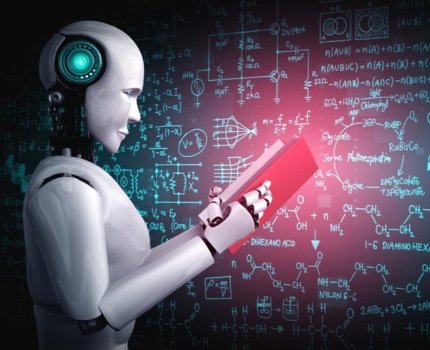Of the myriad technological advances of the 20th and 21st centuries, one of the most influential is undoubtedly artificial intelligence (AI). From search engine algorithms reinventing how we look for information to Amazon’s Alexa in the consumer sector, AI has become a major technology driving the entire tech industry forward into the future.
Whether you’re a burgeoning start-up or an industry titan like Microsoft, there’s probably at least one part of your company working with AI or machine learning. According to a study from Grand View Research, the global AI industry was valued at $93.5 billion in 2021.
AI as a force in the tech industry exploded in prominence in the 2000s and 2010s, but AI has been around in some form or fashion since at least 1950 and arguably stretches back even further than that.
The broad strokes of AI’s history, such as the Turing Test and chess computers, are ingrained in the popular consciousness, but a rich, dense history lives beneath the surface of common knowledge. This article will distill that history and show you AI’s path from mythical idea to world-altering reality.
From Folklore to Fact
While AI is often considered a cutting-edge concept, humans have been imagining artificial intelligences for millenniums, and those imaginings have had a tangible impact on the advancements made in the field today.
Prominent mythological examples include the bronze automaton Talos, protector of the island of Crete from Greece, and the alchemical homunculi of the Renaissance period. Characters like Frankenstein’s Monster, HAL 9000 of 2001: A Space Odyssey, and Skynet from the Terminator franchise are just some of the ways we’ve depicted artificial intelligence in modern fiction.
One of the fictional concepts with the most influence on the history of AI is Isaac Asimov’s Three Laws of Robotics. These laws are frequently referenced when real-world researchers and organizations create their own laws of robotics.
In fact, when the U.K.’s Engineering and Physical Sciences Research Council (EPSRC) and Arts and Humanities Research Council (AHRC) published its 5 principles for designers, builders and users of robots, it explicitly cited Asimov as a reference point, though stating that Asimov’s Laws “simply don’t work in practice.”
Microsoft CEO Satya Nadella also made mention of Asimov’s Laws when presenting his own laws for AI, calling them “a good, though ultimately inadequate, start.”
Continue reading: https://www.eweek.com/enterprise-apps/history-of-artificial-intelligence/
Whether you’re a burgeoning start-up or an industry titan like Microsoft, there’s probably at least one part of your company working with AI or machine learning. According to a study from Grand View Research, the global AI industry was valued at $93.5 billion in 2021.
AI as a force in the tech industry exploded in prominence in the 2000s and 2010s, but AI has been around in some form or fashion since at least 1950 and arguably stretches back even further than that.
The broad strokes of AI’s history, such as the Turing Test and chess computers, are ingrained in the popular consciousness, but a rich, dense history lives beneath the surface of common knowledge. This article will distill that history and show you AI’s path from mythical idea to world-altering reality.
From Folklore to Fact
While AI is often considered a cutting-edge concept, humans have been imagining artificial intelligences for millenniums, and those imaginings have had a tangible impact on the advancements made in the field today.
Prominent mythological examples include the bronze automaton Talos, protector of the island of Crete from Greece, and the alchemical homunculi of the Renaissance period. Characters like Frankenstein’s Monster, HAL 9000 of 2001: A Space Odyssey, and Skynet from the Terminator franchise are just some of the ways we’ve depicted artificial intelligence in modern fiction.
One of the fictional concepts with the most influence on the history of AI is Isaac Asimov’s Three Laws of Robotics. These laws are frequently referenced when real-world researchers and organizations create their own laws of robotics.
In fact, when the U.K.’s Engineering and Physical Sciences Research Council (EPSRC) and Arts and Humanities Research Council (AHRC) published its 5 principles for designers, builders and users of robots, it explicitly cited Asimov as a reference point, though stating that Asimov’s Laws “simply don’t work in practice.”
Microsoft CEO Satya Nadella also made mention of Asimov’s Laws when presenting his own laws for AI, calling them “a good, though ultimately inadequate, start.”
Continue reading: https://www.eweek.com/enterprise-apps/history-of-artificial-intelligence/

